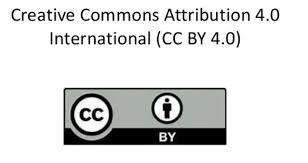Production and evaluation of vermicompost from different types of livestock manures
DOI:
https://doi.org/10.47440/JAFE.2021.2211Keywords:
Manure, earthworm, vermicompost, vermicast, organic fertilizerAbstract
This study aimed to identify the quality of vermicompost produced from different types of livestock manures at the same environmental condition. For this purpose nine concrete pits, locally called as ‘chari’ was used to prepare vermicompost. Three treatments (T1: cow dung, T2: horse manure and T3: goat manure) were replicated three times each and the total of nine vermicomposting pits were used in this experiment. The parameters studied were DM, OM, ash, TN, CF and pH at different day intervals. The results showed that the manure type has a significant influence on the quality of the final vermicompost. This study found that DM content increased gradually up to 45th day and differed significantly (p<0.01) among treatments and among day intervals. Organic matter (OM) also decreased gradually in all treatments of vermicomposting over 45 day’s period of composting. CF content in T1, T2 and T3 decreased gradually and the degradation of CF varied significantly (P<0.01) between treatments and day intervals up to 45 days period. In all three treatments of vermicomposting, TN content gradually increases with the increase of time. Over the time, a little change occurred in pH in all treatments but those were not followed a trend. pH also differ significantly (P<0.05) among treatments and among day intervals but not significant (P>0.05) between treatments and day intervals. Finally, it may be concluded that organic matter degradation rate is faster in vermicomposting of goat manure than cattle and horse manure.






 Publisher:
Publisher: 